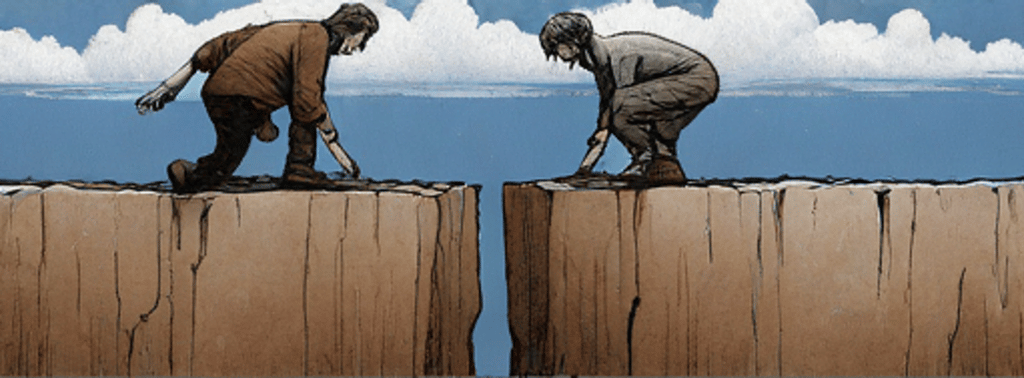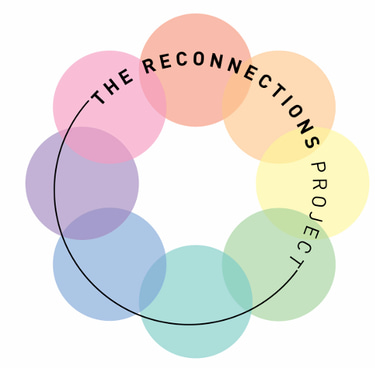We Can't Move Forward If We Don't Learn to Reconnect
In what ways is our ability to create sustained change hindered by our disconnections? What would it look like to reconnect and how can you start reconnecting right now?
EFFECTIVE CAMPAIGNSCULTUREDIVERSITY
Dr Trent Grassian
6/9/20253 min read


I have always been passionate about having the biggest positive impact on the world I can. The problem I have faced, though, is the many ways disconnections have hindered that desire. If we don't start learning to reconnect, I fear we will never be able to truly address our society's critical issues.
How are we disconnected?
We are disconnected in nearly every aspect of our lives. In a professional capacity, we have to separate our 'professional' and 'personal' selves. At work, we are expected to disconnect our feelings, beliefs, and identities from the work that needs to be done (to keep our organisation afloat, continue to get funding, continue to be seen positively by society...)
We are disconnected from what comes naturally to us. Our lives are incredibly busy (to the point where burnout is far too rampant). We spend all our time staring at screens, surrounded by light and noise pollution, unable to just sit in silence for even a few minutes. We remain largely disconnected from nature, from wild animals, and from what was normal and natural to us for the majority of human history.
We are completely disconnected from where our food comes from and how it is made. From where our clothes come from and the people who made them. From the copper mines, keeping our laptops and phones running.
Thanks to social media, we are now even more disconnected from people with opposing views. We spend far too much time shouting into what feels like an echo chamber, often with people who have had similar backgrounds and experiences.
Our work is disconnected by arbitrary divisions created by 'sectors' and job titles, preventing us from seeing (and addressing) the complexity and intersections underlying the issues we are trying to address. The constant barrage of news of horrifying disasters (both natural and human-made) and the impending threat of climate change and ecosystems collapsing is too much to possibly comprehend, let alone feel real empathy toward.
So, we shut down from our feelings, from each other, and from the issues our planet is facing. Quite simply, no one could possibly have enough time or energy to understand all of the issues, so we end up focusing on one thing.
How is this hurting us?
These disconnections are preventing us from connecting with other people around common aims. They are preventing us from having the time and resources to understand and address the complex systems underlying the issues we are fighting. They are keeping us too busy to think that we can create real, systemic change and live in a truly equitable world. They are allowing us to carry on working and living when it seems nearly every day that we are getting closer to what can only be described as impending apocalyptic doom.
But things can be different
I have never been able to keep my hopes and dreams constrained by the reality I live in. In some ways, that has made it difficult for me to feel truly settled and content with the impact I am having, because I always want to be doing more and having a bigger, more sustained impact. However, I have come to see this trait as a gift that allows me to think critically and creatively about how things could be different. It also allows me to help organisations and people see the bigger picture that their work fits within.
How could things be different? Here are just a few ways:
Those working for the public good could set aside time to focus on establishing effective coalitions. Funders could focus on investing in this type of work, and together we could use our time and resources to create real, systemic change.
We could think critically about the work we are doing by integrating ways for employees and stakeholders to share their true opinions, experiences, and identities. By getting to know each other and our beliefs on a deeper level, we could improve buy-in and retention, as well as our ability to identify creative solutions to complex problems.
We could co-facilitate events on broad topics that intersect many 'sectors' (e.g., land use) to talk about issues from a wide variety of perspectives and experiences. Governments could even use these types of events to establish cross-sector Committees that radically re-think past and future policy.
Opportunities for reconnection could be built into our everyday lives through building in time for rest and recuperation, spending time reconnecting with nature, or going to events run by and for people we don't typically spend time with.
And that is exactly why Reonnections was created. How amazing would it be if, instead of feeling trapped by our disconnections, we put our energy into truly reconnecting for a better, more equitable world?
How can you reconnect today?
